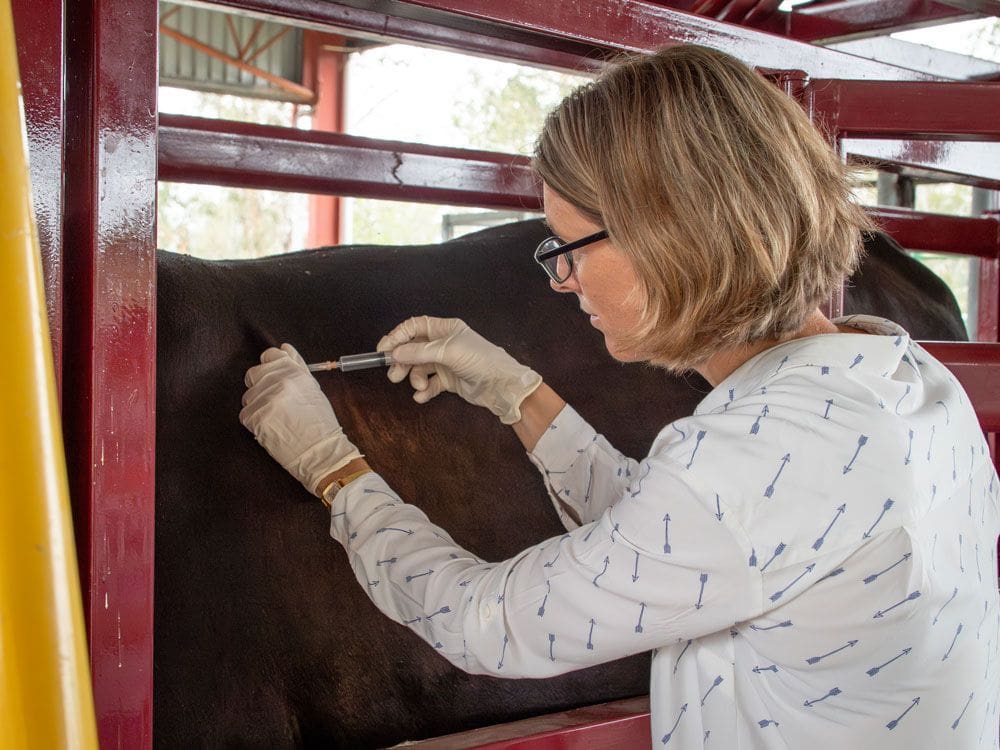
A VACCINE developed at The College of Queensland has confirmed extremely efficient in early trials to handle one of many nation’s prime cattle pests.
Dr Hannah Siddle from the Queensland Alliance for Agriculture and Meals Innovation stated the cattle tick vaccine was created by the Tabor laboratory at UQ’s Centre for Animal Science after greater than 18 years of analysis.
“Professor Ala Tabor led small trials of the vaccine which have proven promising efficacy and we are actually shifting to bigger trials,” Dr Siddle stated.
“The Australian beef business loses $128 million a 12 months due to cattle ticks, and while you look globally, these prices swell into the various billions.
“The parasite causes lack of situation within the animal and the ticks additionally carry and transmit probably deadly illnesses.
“The fantastic thing about this vaccine is that it protects the cattle from the consequences of tick feeding and breaks the life cycle of any tick that bites a vaccinated animal – they don’t lay as many eggs and people eggs don’t hatch with the identical effectivity.”
The present therapy is to spray or dip cattle with chemical pesticides.
“That’s not a sustainable resolution for the business – we wish to cut back the quantity of chemical compounds within the meals chain,” Dr Siddle stated.
“There are additionally considerations ticks are growing resistance to present remedies, which is occurring extra usually in numerous elements of the world.”
Because of an Australian Financial Accelerator Seed Grant awarded to Dr Siddle, the vaccine candidate is being examined on 30 cows in a proof-of-concept trial for industrial adoption.
“This trial will enable us to bridge the hole between the fundamental analysis and proving it’s a cheap vaccine that works in a bigger variety of animals, permitting us to get a industrial companion on board,” Dr Siddle stated.
Professor Tabor stated the method was the end result of a substantial amount of work.
“Attending to the industrial part of something is sort of a dream come true since you work on it for thus lengthy,” Professor Tabor stated.
“It’s actually particular to be in a translational analysis area the place you’re employed on one thing that will truly be utilized in Australia and elsewhere.
“There are different vaccines all over the world that individuals are claiming have good efficacy, however I believe we’re forward of the sport.
“This grant will enable us to show it.”
Early work on the vaccine was funded by Meat and Livestock Australia, The College of Queensland, the Beef CRC (2005-2012) and the Queensland Authorities through the Division of Agriculture and Fisheries and the Qld Good State Fund.
Trending Merchandise











